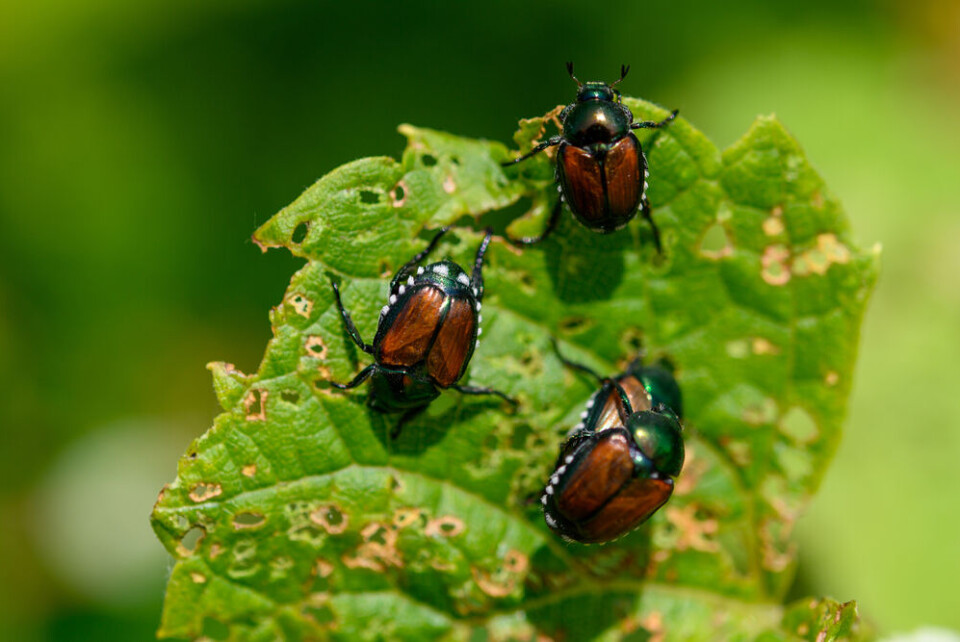-
Festivals, holidays and places to visit in France in April 2025
Including a gladiator battle in a Roman arena, an international garden festival and the Paris marathon
-
Many Société Générale customers to be charged additional fees from April
There is some good news for international banking and instant transfers, however
-
Why gas prices in France are rising in April - and by how much
It comes after six consecutive monthly rises. Try these tips to reduce your bills
Traps placed to stop damaging Japanese scarab beetle coming to France
A national health and safety agency report says early action is needed to stop the invasive insect spreading into the country and destroying plants

The Japanese scarab beetle, which is known to cause severe damage to trees and vegetation including fruit trees, vines, and maize, could soon arrive in France, a new report warns.
Traps have been placed in strategic locations including along the French border with countries where the insect is present.
The report warning comes from national health and safety agency l'Agence nationale de sécurité sanitaire (Anses).
The beetle was first reported in Europe in Italy in 2014, after having spread from its original country, Japan. Since then, its presence has been carefully monitored. It was reported in Switzerland in 2017.
Christine Tayeh, scientific coordinator in the Expertise on Biological Risks unit of the Plant Health Laboratory of Anses, leader of the report, said: “For the moment it has not been detected in France but there is no reason why it could not enter the country.”
The beetle is known to attack more than 400 species of vegetation, including eating them, laying larvae on them and finally killing the plants.
Adult beetles eat the leaves and the larvae feed on the roots of the plants. The plants at most risk include plum and apple trees, vines, maize and asparagus as well as forest trees such as maple and poplar, and ornamental plants such as roses.
Anses is now recommending that surveillance measures be taken to detect the beetle’s possible presence in France as early as possible with a view to stopping its spread should it be reported.
Ms Tayeh said: “[Anses believes] there is a chance of eradicating the Japanese beetle from the beginning of the invasion, provided that dynamic surveillance and then control measures are deployed while the population is still small and isolated.
“Successful eradications in Oregon and California (US) have been done in this context,” she said.
As well as the placement of traps, professionals in the plant and transport sectors have been warned to be alert.
As soon as the beetle is detected, Anses recommends fencing off the area to ensure increased surveillance, alongside mass traps, such as synthetic plant protection products and biological controls.
Other practices have also been shown to be effective in reducing adult damage and larval survival, Anses said, including reducing watering during the egg-laying period and ploughing the soil in autumn.
But the agency warns that "if such actions are not deployed as soon as possible after the detection of the Japanese beetle, preventing its spread once established in the territory may take a long time, with little chance of success".
Related articles
France to take action against Asian hornets and other invasive insects
How can we stop the spread of Japanese knotweed to our French garden?
Nests of new bee-eating oriental hornets found in Marseille destroyed
American blue crabs invading French coast are sent to Élysée Palace
























